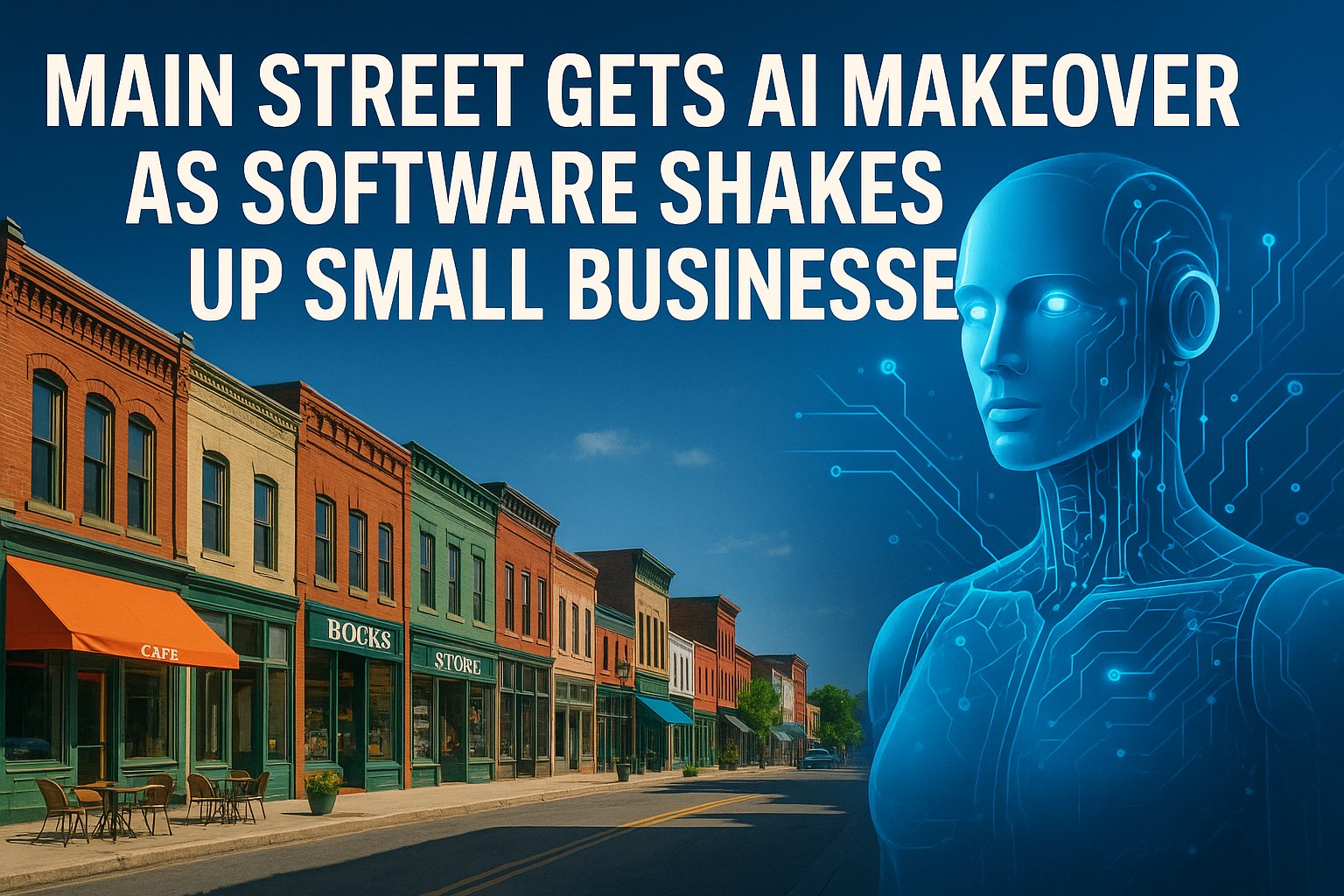Every cloud has a silver lining, even those impacting the global economy.
And in today’s macroeconomic climate clouded by ambiguity from tariffs, rising interest rates, and unpredictable policy shifts, small and medium-sized businesses (SMBs) find themselves navigating not just a commercial maze, but also a technological inflection point.
The gist of it: Thanks to artificial intelligence (AI), technology has become essential for business operations. That necessity is intensified by an economic atmosphere described with one word. Uncertainty.
“What used to be a nice-to-have is a must-have. More and more SMB owners are inquiring about technologies that can help them with their day to day,” Kal Amin, 1848 Ventures’ managing partner, told PYMNTS in a discussion with Jateen Parekh, founder at Luminest.
This haze is forcing business owners to reassess traditional models and seek new efficiencies through tech. In a world grappling with uncertainty, digital clarity may be the ultimate value proposition. The story surround AI isn’t just about pressure. It’s about possibility.
The Next SMB Generation
As with many era-defining technologies, a generational shift is helping to propel the AI wave. Many legacy SMB owners are reaching retirement age, and younger, tech-savvy entrepreneurs are stepping in. That generational baton pass coincides with a powerful trend: the rise of vertical software-as-a-service (SaaS) solutions built specifically for niche SMB sectors.
“There’s a new entrepreneur coming in who is digital-first, AI-curious … really looking for technology to solve problems historically managed manually,” Amin said.
“These 35 million businesses represent 44% of U.S. GDP and over 70% of job creation. Ensuring they stay vibrant isn’t just smart. It’s essential,” he added.
And while much of the AI discourse centers around cost savings and efficiency, there is an often overlooked element: the peace of mind more efficient and automated operations and workflows can help provide.
Amin offered as an example from 1848 Ventures’ portfolio, TakeUp AI, a platform providing dynamic pricing optimization for the underserved bed and breakfast (B&B) market.
“B&Bs historically haven’t had pricing tools like big hotel chains. One customer was able to build two additional rooms because of the revenue generated from our pricing engine,” he said.
The Venture Studio model, wherein companies are incubated and launched with close involvement from founders and investors, is gaining favor as traditional venture capitalists reevaluate their models amid cooling confidence and longer timelines to liquidity.
Amin said 1848 Ventures embeds with SMB owners, immerses in their operations, and co-creates solutions. It’s an empathetic, ground-up model that stands in contrast to traditional top-down software delivery across verticals.
This micro-targeting is intentional. Rather than develop general-purpose solutions, AI can enable applications to be designed backward from the SMB’s real pain points.
Building From the Problem Up
For his part, Parekh, who co-founded a company that integrates AI into the residential and property service ecosystem, saw the potential firsthand as his team layered in diverse datasets — material properties, climate variables, utility pricing, and even hazard assessments — to generate hyper-personalized recommendations for home efficiency and safety. The outcomes stunned even the developers.
“Homeowners can literally take photographs of things in their home. … AI understands your climate, your utility company, your energy bills. It comes forth with solutions that would work best for your goals,” Parekh said.
“We received feedback from customers saying, ‘I didn’t even know this was a thing.’ People discovered their smoke detectors were expired, or they didn’t know where their fire extinguishers were,” he added. “People are now asking for more coverage and overview. They want to make sure critical systems don’t fail when they’re needed most — winter heating, summer cooling. That’s not just economics. That’s quality of life.”
As AI tools become more accessible and sophisticated, further integration into property services, particularly around field deployment and real-time customer support, could be on the horizon.
“Real estate agents never want to miss a call. That’s a customer lost. AI can catch that. Field techs are spending too much time on-site. AI can shorten that with better diagnostics and preparation,” Parekh said.
“AI is additive, it’s not dilutive,” Amin stressed.
That’s why, as AI evolves from a futuristic curiosity to an everyday tool, the businesses most impacted may not be tech giants but the dry cleaners, HVAC installers, B&B owners, and real estate agents on Main Street.
Source: https://www.pymnts.com/


